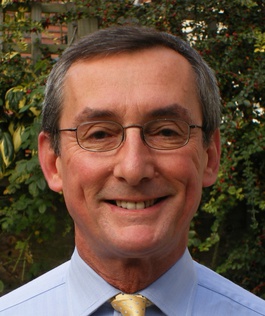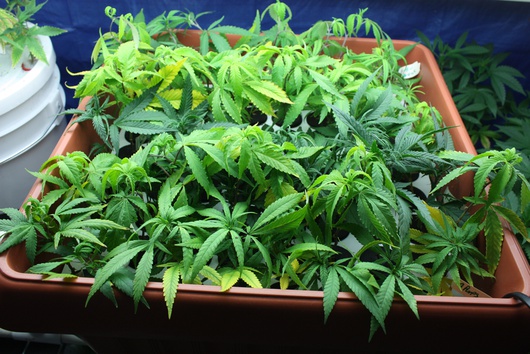
"Legalise Drugs": Interview with ex-police-chief constable Tom Lloyd
Published on
Tom Lloyd worked in the police force for three decades. Having witnessed first hand the harms associated with drugs, the former Chief Constable has reached a definitive conclusion; the drugs are not the problem; the problem is the law. He has devoted his retirement to campaigning for change- namely legalisation and regulation. We chatted at his home in Cambridge
So why is Tom Lloyd so convinced that drugs should be legalised? Very early on in his policing career Lloyd realised something was not right. He tells me how overdosing addicts were ‘thrown into a room covered in bare mattresses which was known as ‘The Pit’’. They were then put back on their feet and kicked out, with no proper help or support. Most drug addicts have lived through serious traumas, Lloyd explains, ‘something goes wrong in these people’s lives and blaming them for it is entirely the wrong approach. Helping them out of their circumstances is not only the right approach for them, but it’s also a better approach for society. It’s much cheaper to intervene and to treat.’
 What about recreational users? People who smoke weed to relax or drop pills at parties? ‘Most people who consume drugs don’t have a problem,’ Lloyd explains, ‘if you’ve got a problem with drug use, the last thing you need is to be arrested and prosecuted, if you haven’t got a problem, the last thing you need is to be arrested and prosecuted.’ The phrase is concise and pithy but remarkably penetrating. With a few words, Lloyd has revealed the pernicious absurdity of our laws. Why don’t people see this? Lloyd blames media scaremongering. ‘There is a real disjunction which comes from the fact that we have this emotional fear of drugs and what they can do which turns us into irrational beings,’ he says.
What about recreational users? People who smoke weed to relax or drop pills at parties? ‘Most people who consume drugs don’t have a problem,’ Lloyd explains, ‘if you’ve got a problem with drug use, the last thing you need is to be arrested and prosecuted, if you haven’t got a problem, the last thing you need is to be arrested and prosecuted.’ The phrase is concise and pithy but remarkably penetrating. With a few words, Lloyd has revealed the pernicious absurdity of our laws. Why don’t people see this? Lloyd blames media scaremongering. ‘There is a real disjunction which comes from the fact that we have this emotional fear of drugs and what they can do which turns us into irrational beings,’ he says.
The Balloon Effect
Lloyd explains that drug laws are meant to make people safer but they actually put people at greater risk. By prohibiting drugs, the government doesn’t control them, but in fact relinquishes the ability to control them. People don’t die from taking ecstasy, for example, they die from the contaminants added by criminals who don’t care about their customers. We talk about the prevalence of so-called ‘legal-highs’, which claimed the lives of 52 people in the UK in 2012. ‘It’s this balloon effect,’ says Lloyd, ‘instead of people using something relatively safe like MDMA or cannabis, they’ll go to these unknown, highly dangerous products.’ I ask whether every time someone dies from drugs, it’s blood on the government’s hands. Tom responds, ‘It’s perhaps an emotive phrase, but could all the thousand or so overdose related deaths from heroin, methadone and other drugs be avoided? The answer to that is ‘yes, virtually all of them.’’
 One argument that often confronts Lloyd is that legalising drugs will encourage more people to take them. He refutes this, highlighting the example of Portugal, where drug use has halved ten years after decriminalisation. In fact, Lloyd says the argument that ‘drug use will rise’ misses the point entirely. ‘The focus should be on reducing the harms rather than reducing the market, because in my eyes you can’t reduce the size of the market under drug prohibition because it artificially inflates the price of drugs. Marijuana is pretty much a weed. It’s only worth its weight in gold because it’s prohibited.’ When he moved to leafy Cambridge, a dreamy little town with its spindly spires, Lloyd did not expect to find hard drug use. But on one day alone, seven crack dealers were arrested. The massive financial incentives created by illegality mean that drug markets spread like wild fire.
One argument that often confronts Lloyd is that legalising drugs will encourage more people to take them. He refutes this, highlighting the example of Portugal, where drug use has halved ten years after decriminalisation. In fact, Lloyd says the argument that ‘drug use will rise’ misses the point entirely. ‘The focus should be on reducing the harms rather than reducing the market, because in my eyes you can’t reduce the size of the market under drug prohibition because it artificially inflates the price of drugs. Marijuana is pretty much a weed. It’s only worth its weight in gold because it’s prohibited.’ When he moved to leafy Cambridge, a dreamy little town with its spindly spires, Lloyd did not expect to find hard drug use. But on one day alone, seven crack dealers were arrested. The massive financial incentives created by illegality mean that drug markets spread like wild fire.
The Low Lying Fruit
Keen to boost statistics, the police arrest non-violent, easy  target drug dealers- ‘the low lying fruit.’ On the other hand the more ruthless dealers flourish. It’s a kind of economic Darwinism whereby the law ‘breeds the more violent, the more corrupting, the more corrosive, the more dangerous criminal gangs.’ Harmless drug takers are often the victims of the law. Lloyd tells me how officers would seize small cannabis plants and arrest their owners, often friendly hippies. The plants would be tended to and watered on the police station windowsill until they became blooming, vertiginous evidence that would stand up in court. The courts of the land; that expensive deterrent which doesn’t deter but instead stains the offender’s CV, locking them out of the job market and into long term criminality. It seems that for most drug users, prosecution by the law poses a greater potential harm than the drugs themselves.
target drug dealers- ‘the low lying fruit.’ On the other hand the more ruthless dealers flourish. It’s a kind of economic Darwinism whereby the law ‘breeds the more violent, the more corrupting, the more corrosive, the more dangerous criminal gangs.’ Harmless drug takers are often the victims of the law. Lloyd tells me how officers would seize small cannabis plants and arrest their owners, often friendly hippies. The plants would be tended to and watered on the police station windowsill until they became blooming, vertiginous evidence that would stand up in court. The courts of the land; that expensive deterrent which doesn’t deter but instead stains the offender’s CV, locking them out of the job market and into long term criminality. It seems that for most drug users, prosecution by the law poses a greater potential harm than the drugs themselves.
‘The government is not waging a war on drugs but a war on people,’ says Lloyd. Unlike most wars, in this one, costly attrition is the government’s desired outcome. Being ‘tough on drugs’ is a sure vote winner. The war must go on. Research by the charity Transform shows drugs cost the UK government £16.75bn a year. Food for thought? Not in the eyes of the politicians. They have refused to conduct cost analysis research in the UK for over a decade. ‘The lack of research is deliberate,’ Lloyd tells me, ‘because if governments did the research, they would expose, if only in financial terms, how ineffective current law enforcement policy is.’ Food for thought is the last thing needed by politicians who see the billions spent on the war on drugs as a PR investment rather than a socio-economic project.
‘This failed policy of drug prohibition is a scourge of the whole world,’ concludes Lloyd passionately, ‘it’s a massive abuse of human rights.’ But change is on the horizon. Reformed drug legislation in Portugal, the Czech Republic, Uruguay, Colorado and Washington has sent waves of excitement and frissons of fear rippling through media and parliaments across the globe. ‘This is going to happen,’ says Lloyd, ‘there really is now an unstoppable force for change.’ Once unassailable dogma - ‘The War On Drugs’- is now up for debate.
Read the full interview here.



